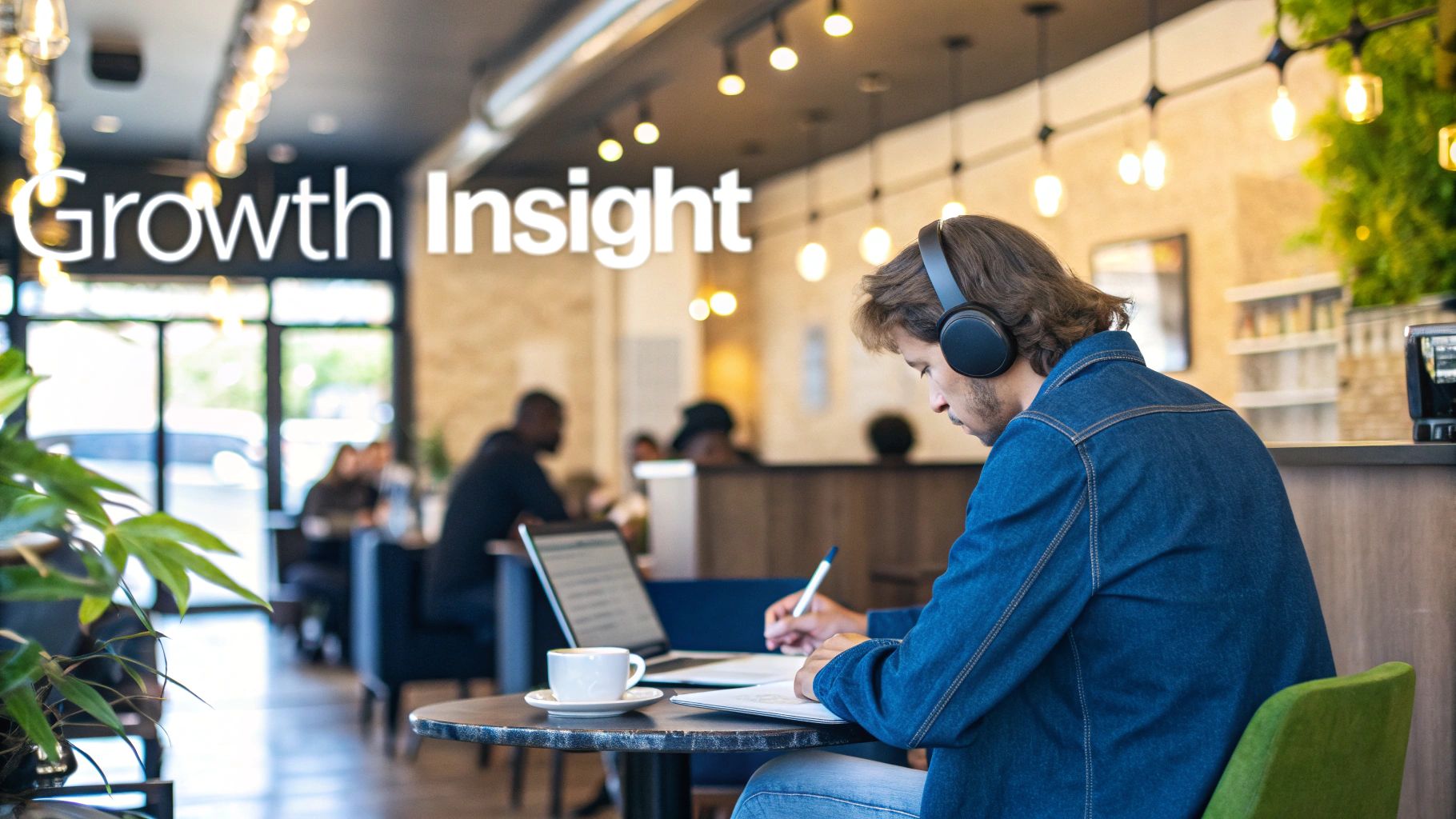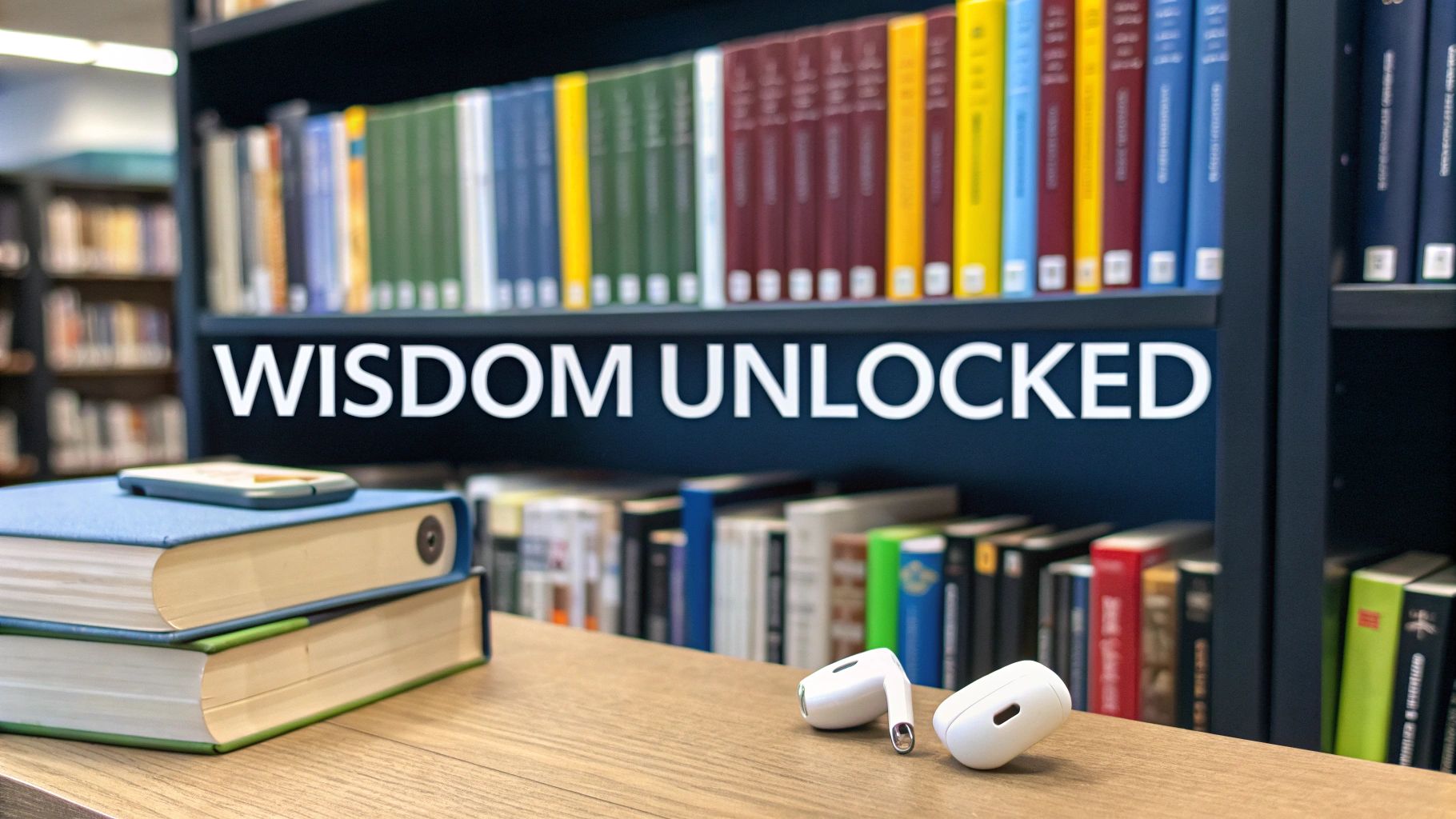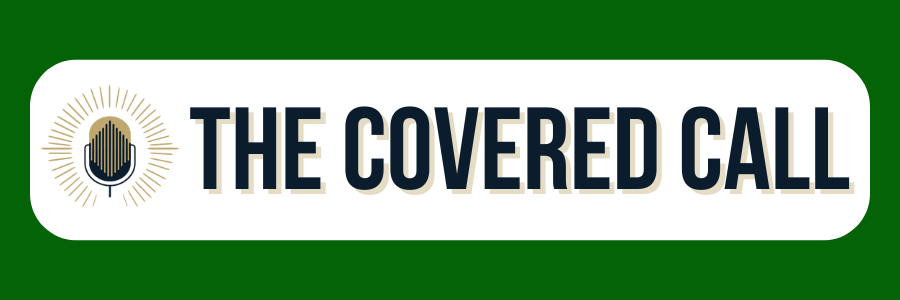The Evolution and Impact of Self Development Podcasts

People have always sought ways to improve themselves, but how they do it has changed dramatically over time. While books and seminars still play an important role, self development podcasts have emerged as a fresh and accessible option that fits naturally into daily life. As millions of people now turn to podcasts for personal growth, it's worth examining what makes this format so effective.
The Rise of Audio Learning
The beauty of podcasts lies in their flexibility. You can absorb valuable insights while driving to work, going for a run, or doing household chores. This makes it possible to focus on self-improvement even with a packed schedule. The audio format also creates an intimate connection - it feels like having a personal conversation with the host. Take The Covered Call Podcast for example - the hosts share personal stories and experiences that listeners can relate to directly.
The numbers show just how popular self-improvement podcasts have become. The market hit $1.2 billion in 2021 and experts predict it will grow to $2.5 billion by 2028. For more details on this growth, check out this analysis from Podcast Hawk. This surge reflects how many people now prefer to learn and grow through audio content.
The Power of Storytelling and Expert Insights
The best self-development podcasts combine compelling stories with practical advice from experts. Real-world examples and actionable tips help listeners understand and apply complex ideas to their own lives. Rather than just presenting abstract concepts, hosts break down big ideas into steps people can actually follow.
Having access to industry leaders and successful professionals adds another valuable dimension. Listeners get to learn directly from people who have achieved what they're working toward. By featuring different perspectives and approaches, podcasts help expand how people think about personal growth. This mix of storytelling, expert knowledge, and practical guidance has made podcasts an essential tool for anyone focused on self-improvement.
Understanding Modern Self Development Listeners
People who listen to self-development podcasts aren't just looking for entertainment - they're actively working to improve their lives. These engaged learners seek out knowledge and inspiration they can apply directly to achieve their personal goals. Understanding what draws them in and how they engage with content helps create more meaningful podcast experiences.
The Motivations Behind the Headphones
What makes someone press play on a self-development podcast? The reasons vary widely based on individual goals. Many listeners focus on personal growth - they want to build better relationships, advance at work, or find deeper purpose in life. Others look for specific advice they can put into action right away. The sense of community also matters, as listeners connect with others on similar self-improvement journeys through podcast discussions and groups.
Listening Habits and Success
The most effective listeners build podcasts into their daily lives naturally. They tune in during commutes, workouts, or quiet moments at home - turning otherwise routine time into learning opportunities. Rather than passive listening, they take an active approach through note-taking, reflection, and actually testing out the strategies they learn. This hands-on mindset helps turn podcast insights into real changes in their lives.
Demographics and Listening Trends
The self-development podcast audience keeps growing and includes people from many backgrounds. Research shows that 66% of podcast fans in America are between 12 and 34 years old. While numbers drop with age, over 25% of Americans 55 and older still listen monthly. Women now make up 48% of U.S. podcast listeners, showing increasing female engagement. The audience tends to be well-educated, with 66% holding college degrees and earning household incomes over $75,000 annually. Find more statistics here.
From Consumption to Transformation
Simply listening isn't enough - real change comes from taking action. The listeners who benefit most use podcasts as a starting point for growth, not the end goal. They test out new ideas, build better habits, and keep refining their approach based on what they learn. This active mindset helps them create lasting positive changes rather than just collecting information. When listeners commit to applying what they learn, self-development podcasts become powerful tools for personal transformation.
Breaking Down the Most Impactful Self Development Shows

Not all self-development podcasts deliver the same results. Some spark real change in listeners' lives, while others miss the mark. The difference comes down to three key elements: carefully crafted content, authentic hosting, and professional production.
Content Strategies for Impact
The best shows focus on clear, actionable advice that listeners can use right away. Rather than vague suggestions, they provide specific steps, exercises, and methods. For example, a show might walk through the exact morning routine of successful entrepreneurs or demonstrate communication techniques through real scenarios.
The Role of the Host
Great hosts build real connections with their audience through honest sharing and relatable stories. When listeners feel they know and trust the host, they're more likely to take the advice to heart. This personal bond turns the podcast from just another information source into a trusted guide for personal growth.
Production Quality and Storytelling
Clean, professional audio and thoughtful episode structure make learning easier and more enjoyable. The most engaging shows weave personal stories and case studies throughout their lessons. These real-life examples help listeners better understand and remember key concepts.
Different Formats, Different Learning Styles
Each listener has their own preferred way of taking in information. Some learn best from expert interviews that dig deep into specific topics. Others connect more with shorter, focused episodes that tackle one idea at a time. Still others benefit from panel discussions that explore multiple viewpoints. Finding the right format makes a huge difference in how well the lessons stick.
Case Studies: The Best in the Business
The Tim Ferriss Show stands out as a prime example, featuring in-depth conversations with top performers across many fields. The show maintains a strong 4.6/5 rating on Apple Podcasts, with weekly episodes averaging 107 minutes. Other standout shows include The Jordan Harbinger Show, The Rich Roll Podcast, and Impact Theory with Tom Bilyeu. Each brings its own approach to personal development while maintaining high standards for content and delivery. Learn more about top self-development podcasts here.
The Next Generation of Personal Growth Content

Self-improvement content keeps evolving, driven largely by younger audiences who are reshaping personal development podcasts. These listeners bring fresh perspectives and different needs compared to earlier generations, pushing creators to reimagine how they deliver valuable insights and guidance.
Emerging Trends in Podcast Consumption
Young listeners today look for clear, actionable advice they can apply right away. They connect most with hosts who share real stories and speak from personal experience rather than theory. This shift means shorter, focused episodes are gaining ground over lengthy conversations. Many listeners also want to actively participate through live Q&As and social media discussions.
How Podcasts Are Adapting
Smart podcast creators are meeting these changing preferences head-on. Some weave personal stories throughout their episodes to explain complex ideas in relatable ways. Others use carefully chosen music and sound design to create stronger emotional connections. The focus is on making each episode both practical and memorable.
The Intersection of Technology and Personal Development
Digital tools are opening new ways for podcasts to serve their audiences. AI helps match listeners with episodes they'll find most helpful, while social platforms let hosts build active communities around their content. Looking at the numbers shows just how much young people embrace these changes - over the past five years, monthly podcast listening among 13-24 year olds has grown by 57%. Today, 47% of this age group listens monthly, adding up to 24 million regular young listeners in the U.S. alone according to Adweek's research. With strong listener growth and smarter technology, personal development podcasts are well-positioned to keep helping new generations learn and grow.
Selecting Your Perfect Personal Growth Podcast

Finding the right self-development podcasts can feel like searching for a needle in a haystack. With thousands of shows available, you need a smart approach to discover the ones that will genuinely help you grow. Think of it as crafting your personal audio curriculum - one that fits your unique goals and learning style.
Defining Your Growth Objectives
Start by getting crystal clear on what you want to achieve. Are you looking to build better habits? Improve your relationships? Master your finances? Having specific goals makes it much easier to find relevant content. For instance, if you're focused on building wealth, shows like The Covered Call Podcast offer practical insights into investing and business growth.
Evaluating Podcast Content and Credibility
Quality and credibility should be your top criteria when choosing podcasts. Pay attention to how the host presents ideas - are they clear and practical? Do they back claims with evidence? Look for hosts who bring real expertise and experience to their topics. The best shows blend thoughtful discussions with concrete examples and expert interviews that you can apply to your life.
The Importance of Social Proof and Reviews
Reviews and ratings provide valuable clues about a podcast's impact. High ratings and detailed positive reviews often signal quality content that delivers results. Browse listener comments to understand how others have benefited, but remember that your needs are unique. A show that works wonders for someone else might not resonate with you, so trust your judgment.
Creating a Balanced Listening Schedule
Mix up your podcast diet just like you'd vary your reading. Include different formats and perspectives to keep learning fresh and engaging. Try solo shows for deep dives into specific topics, interviews for expert insights, and panel discussions for varied viewpoints. Set specific times for different topics - maybe leadership content during your morning commute and creativity podcasts during afternoon walks.
Tracking Progress and Measuring Impact
Turn passive listening into active growth by tracking what you learn. After each episode, write down key insights and specific actions you'll take. Keep notes on how different shows influence your thinking and behavior over time. This helps you spot which podcasts truly drive your growth. When you actively engage with the content and put ideas into practice, podcasts become powerful tools for lasting positive change.
Transforming Listening into Life Changes
Most people struggle to turn podcast insights into real personal growth. While listening to personal development podcasts is a great start, making lasting changes requires more than just absorbing information. Let's explore practical ways to take what you learn and turn it into meaningful action.
From Information Overload to Actionable Insights: Note-Taking Strategies
It's easy to feel overwhelmed by all the ideas and advice shared in self-development podcasts. The key is having a solid note-taking system to capture the most valuable points. Keep a dedicated notebook or use apps like Evernote or Notion to record key concepts, practical tips, and quotes that speak to you. For instance, when listening to an episode about morning routines, write down specific habits mentioned and their benefits, rather than trying to capture every detail.
The Power of Reflection: Making Meaning from Podcast Lessons
Taking time to reflect helps bridge the gap between learning and doing. After each episode, spend 5-10 minutes thinking about what resonated most with you. Consider questions like: How does this apply to my life? What specific changes could I make based on these ideas? This helps you process the information more deeply and connect it to your personal goals and experiences.
Action Planning: Turning Insights into Tangible Change
The next step is creating clear, specific actions from your insights. Break down bigger goals into small, doable steps with deadlines. For example, if you want to become a better communicator, start by practicing active listening in one conversation per day for a week. Then get feedback from someone you trust. Having concrete next steps makes abstract concepts real and builds momentum.
Accountability and Progress Tracking: Staying on Course
To make changes stick, you need accountability. Find an accountability partner, join online communities focused on personal growth, or use habit tracking apps to monitor your progress. Regular check-ins on your goals and action items help you stay focused. Tracking your progress gives you data about what's working well and what needs adjustment.
Overcoming Challenges and Maintaining Momentum
Everyone faces obstacles when trying to grow. You might lose motivation, get busy with other priorities, or find it hard to stay consistent with new habits. Remember that setbacks are normal. When you hit a rough patch, revisit your initial goals, look at how far you've come, and adjust your approach if needed. Small steps forward still count as progress.
Looking for actionable insights and inspiring stories to fuel your journey towards personal freedom? Tune in to The Covered Call Podcast and discover how to unlock your full potential.

